
GENDER IN HISTORY
Series editors:
Lynn Abrams, Cordelia Beattie, Pam Sharpe and Penny Summerfield
The expansion of research into the history of women and gender since the 1970s has changed the face of history. Using the insights of feminist theory and of historians of women, gender historians have explored the configuration in the past of gender identities and relations between the sexes. They have also investigated the history of sexuality and family relations, and analysed ideas and ideals of masculinity and femininity. Yet gender history has not abandoned the original, inspirational project of womens history: to recover and reveal the lived experience of women in the past and the present.
The series Gender in History provides a forum for these developments. Its historical coverage extends from the medieval to the modern period, and its geographical scope encompasses not only Europe and North America but all corners of the globe. The series aims to investigate the social and cultural constructions of gender in historical sources, as well as the gendering of historical discourse itself. It embraces both detailed case studies of specific regions or periods, and broader treatments of major themes. Gender in History titles are designed to meet the needs of both scholars and students working in this dynamic area of historical research.
The state as master
OTHER RECENT BOOKS IN THE SERIES
Love, intimacy and power: marriage and patriarchy in Scotland, 16501850Katie Barclay (Winner of the 2012 Womens History Network Book Prize)
Modern women on trial: sexual transgression in the age of the flapperLucy Bland
The Womens Liberation Movement in ScotlandSarah Browne
Modern motherhood: women and family in England, c. 19452000Angela Davis
Gender, rhetoric and regulation: womens work in the civil service and the London County Council, 190055Helen Glew
Jewish women in Europe in the Middle Ages: a quiet revolutionSimha Goldin
Women of letters: gender, writing and the life of the mind in early modern EnglandLeonie Hannan
Women and museums 18501914: Modernity and the gendering of knowledgeKate Hill
The shadow of marriage: singleness in England, 191460Katherine Holden
Women, dowries and agency: marriage in fifteenth-century ValenciaDana Wessell Lightfoot
Women, travel and identity: journeys by rail and sea, 18701940Emma Robinson-Tomsett
Imagining Caribbean womanhood: race, nation and beauty contests, 192970Rochelle Rowe
Infidel feminism: secularism, religion and womens emancipation, England 18301914Laura Schwartz
Women, credit and debt in early modern ScotlandCathryn Spence
Being boys:youth, leisure and identity in the inter-war yearsMelanie Tebbutt
Queen and country: same-sex desire in the British Armed Forces, 193945Emma Vickers
The perpetual fair: gender, disorder and urban amusement in eighteenth-century LondonAnne Wohlcke
THE STATE AS MASTER
GENDER, STATE FORMATION AND COMMERCIALISATION IN URBAN SWEDEN, 16501780

Maria gren

Manchester University Press
Copyright Maria gren 2017
The right of Maria gren to be identified as the author of this work has been asserted by her in accordance with the Copyright, Designs and Patents Act 1988.
Published by Manchester University Press
Altrincham Street, Manchester M1 7JA
www.manchesteruniversitypress.co.uk
British Library Cataloguing-in-Publication Data
A catalogue record for this book is available from the British Library
ISBN 978 1 5261 0064 1 hardback
First published 2017
The publisher has no responsibility for the persistence or accuracy of URLs for any external or third-party internet websites referred to in this book, and does not guarantee that any content on such websites is, or will remain, accurate or appropriate.
Typeset by Out of House Publishing
Contents
This book is one of several outcomes of the project Gender and Work in Early Modern Sweden, first carried out between 2010 and 2014 and now to be continued from 2017 to 2021. The over-arching purpose of the project was, and is, to gain a more precise picture of womens and mens work what they actually did for a living and to situate the results within a number of broader debates of interest to historians. One of these debates has to do with the transformative process known as European state formation. While a large historiography has been devoted to this process, and its causes, effects and national variants, comparatively little attention has been paid to the ways in which state formation affected peoples working lives and what this, in turn, did to notions of gender. The present book is a contribution to this under-explored topic.
In writing this book, I have benefited greatly from the multifaceted expertise at my place of work: the Department of History at Uppsala University in Sweden. From the 1960s onwards, scholars at the department have made many contributions to the discussion about state formation and its Swedish peculiarities, not least the financial problems involved in a sparsely populated country on the periphery of Europe establishing itself as an empire of sorts. More recently, from the 1980s, gender history has gradually become an increasingly important field of speciality at the department. These two historiographic strands were brought together in the Gender and Work project, as this book, for instance, bears out. I wish to extend a warm thank you to all my colleagues for providing such a vibrant and friendly atmosphere. Special thanks are due to Jan Lindegren, who has a foot in both the older tradition, with its focus on state finance, and the newer one, with its interest in gender and work. Karin Hassan Jansson and Margaret Hunt have inspired me with many thoughtful comments, as have Theresa Johnsson, Marie Lennersand, Dag Lindstrm, Sofia Ling, Linda Oja and Christopher Pihl. Bjrn Asker suggested that I choose rebro as my area of study, which was a good idea. Outside the department, Amy L. Erickson, Julie Hardwick, Petri Karonen, Sheilagh Ogilvie and Ariadne Schmidt have all contributed to my ideas, even though they may not be aware of this.
I had the good fortune in 2013 to be able to undertake a period of research at the Stellenbosch Institute of Advanced Study in Stellenbosch, South Africa. I wish to thank the director, Hendrik Geyer, the staff and all the fellows for a stimulating and wonderful time. When I say this, I am thinking in particular of Judith Baker, whom I unfortunately never met again after we said goodbye in May 2013, and Ian Hacking. In 2016, I benefited from a similarly fruitful research period at the Swedish Collegium for Advanced Study in Uppsala. I was happy to have this opportunity at precisely the time I was to finalise this book, and I am very grateful to the Collegiums principal, Bjrn Wittrock, and deputy principal emerita, Barbro Klein, the staff and all the fellows for lively discussions in a friendly setting.


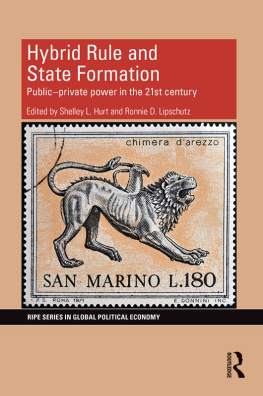
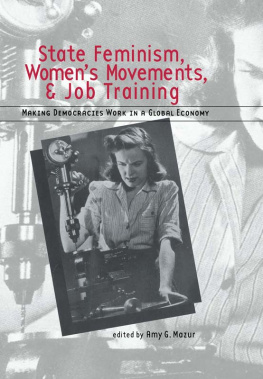
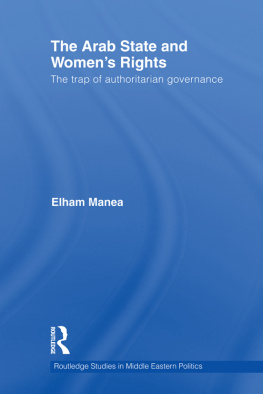
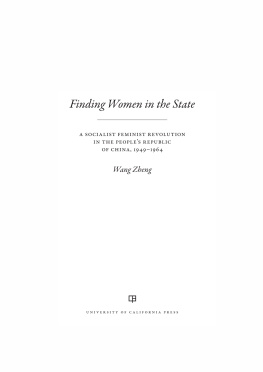
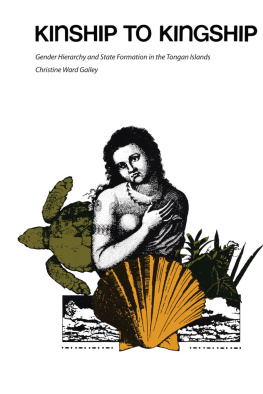




 Maria gren
Maria gren 